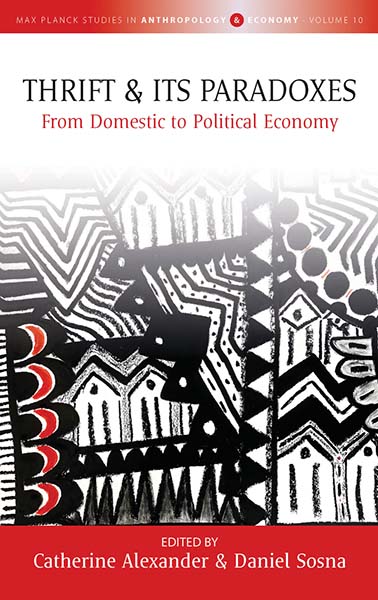“This compilation of eight essays assessing thrift in modern cultures is a full examination that opens up a new arena of research. This volume presents a comprehensive definition and study of thrift…and through multiple ethnographic examples illustrates the importance of thrift in understanding economic relations at the household and supra-household level, including work cultures…The moral implications of thrift are explored in detail and a much-needed history of the concept in anthropological literature is offered, including on waste and discard studies, the limits of thrift, and its scale…This book would be ideal for advanced undergraduate or graduate seminars in economic anthropology. It is a valuable addition to the field.” • Society for the Anthropology of Work (americananthro.org)
“This is an exciting and theoretically innovative volume… It presents a collection of richly ethnographic, well-written chapters from across the globe which re-consider thrift – as a category of social, material, and economic action – in the light of contemporary ethnographic research and theory.” • Nicolette Makovicky, University of Oxford
Thrift is a central concern for most people, especially in turbulent economic times. It is both an economic and an ethical logic of frugal living, saving and avoiding waste for long-term kin care. These logics echo the ancient ideal of household self-sufficiency, contrasting with capitalism’s wasteful present-focused growth. But thrift now exceeds domestic matters straying across scales to justify public expenditure cuts. Through a wide range of ethnographic contexts this book explores how practices and moralities of thrift are intertwined with austerity, debt, welfare, and patronage across various social and temporal scales and are constantly re-negotiated at the nexus of socio-economic, religious, and kinship ideals and praxis.
Catherine Alexander is Professor of Anthropology at Durham University. Drawing on fieldwork in Turkey, Kazakhstan and Britain, she has written widely on economic anthropology and material culture including households, recycling and waste.
Daniel Sosna is a senior researcher in the Department of Ecological Anthropology, Institute of Ethnology, Czech Academy of Sciences. Sosna is a specialist on ethnographic and archaeological research of waste regimes with a regional focus on Central Europe. He co-edited the book Archaeologies of Waste: Encounters with the Unwanted (Oxbow Books, 2017).
Area:
LC: HC79.C6 T53 2022
BISAC: SOC002010 SOCIAL SCIENCE/Anthropology/Cultural & Social; BUS050030 BUSINESS & ECONOMICS/Personal Finance/Money Management; POL023000 POLITICAL SCIENCE/Political Economy
available open access under a Creative Commons Attribution-NonCommercial-NoDerivatives 4.0 International License (CC BY-NC-ND 4.0) with support from the Max Planck Institute for Social Anthropology.


